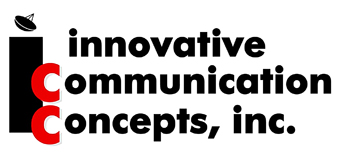Technology continues to grow and change every day. The complexities around it are leaving IT departments with a herculean task of trying to keep up. It makes sense that managed IT services providers are quickly becoming a one-stop-shop for SMB and large organizations’ network management needs.
MSPs offer different services to their clientele, from business phone systems management to cybersecurity consulting and data center solutions. Organizations also outsource to the MSPs due to their vast expertise and resources.
Choosing the right Managed IT services provider means asking the right questions. Here are some factors to consider before making your choice.
Service Level Agreements
To start with, as a CTO, you need to assess your organization’s structure and systems. Identify the inefficiencies and what improvements are necessary. The audit will help you determine what services you require from your MSP. Most MSPs offer a technology auditing service for their clients and may aid you in making the right choice.
A service level agreement (SLA) from your service provider outlines the various services the vendor will provide. The contract varies from case to case but is generally composed of:
- Warranties
- Client responsibilities
- Performance agreements
- Crisis management procedures
Data Center Facilities
The right MSP ought to have a dedicated network operation center loaded with the latest technology. The MSP availability and performance of their technology affects the security of your information and assets. Research shows that 94% of business enterprises depend on cloud services to streamline their businesses. The MSP you chose should, therefore, offer 24/7 technical support for your business requirements. Any downtime will lead to productivity and revenue loss.
Don’t feel shy about inquiring what their internal process, procedures, and controls are. The answers to these questions paint a good picture of how they can handle your business needs and emergencies. The right MSP will offer full redundancy and IT disaster recovery services to their clients.
Regulatory Compliance
Most MSPs function as an extension to a business organization IT department. It means that they handle critical client data on a day-to-day basis. Most clients are now demanding for their managed IT services provider to take responsibility for regulatory compliance. The MSP must meet your expectations for network security.
You must check for various accreditation certificates on data management. Some of the certifications include ISO 9001 for quality management service and ISO 27001 for information security management systems.
Talented Pool of Experts
One of the benefits of outsourcing IT management services is the quality expertise that MSPs have. Managed IT services providers attract qualified and talented staff with a promise of flexibility and career growth. Consider giving priority to service providers whose experts continuously undergo training. It helps them keep up with the latest technologies.
Individual certifications are also proof of dedication to excellence. The experts ought to be responsible for offering support and handling your business needs. Take out a survey to find out MSPs who value their employees as they, in turn, will value your business.
Placing your organizational IT services under a managed IT services provider may be the answer you are searching for. Rely on ICC when you’re ready to take your business to the next level.


Thank you for your sharing. I am worried that I lack creative ideas. It is your article that makes me full of hope. Thank you. But, I have a question, can you help me? https://www.binance.com/fr/register?ref=DB40ITMB